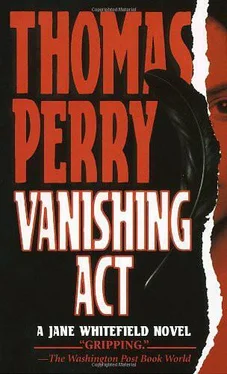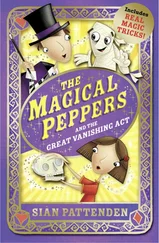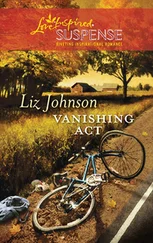He walked off down the stairs and Jane kept packing. It was awful. Why she had ever admitted it, told this old man her secret, she couldn’t imagine now. But as she worked, she knew she was denying things she had no right to dismiss. There was no getting around the fact that Jake was the only one who could recognize the four men.
She closed the suitcase and ran downstairs. She started to activate the alarm system, then changed her mind and turned it off. If John came here, he would try to break in again.
She hurried to the car, and there was Jake sitting in the passenger seat with a sportcoat on and his suitcase lying on the back seat. She got in beside him. "Please listen," she said. "This isn’t the Rowland boys throwing Dave Dormont into Ellicott Creek. John and I both knew a nice, gentle man named Harry. He and John helped each other at different times. I took them both to another nice man named Lewis Feng, who helped them to hide. Today Lew Feng is dead. Harry is dead. John may be dead. If those men think you’re a problem, you’ll be dead."
"I’m old," he said, "but I’m not feebleminded. I know what I’m doing. I’m just waiting to see if you do."
She started the engine and backed out of the driveway. "Just don’t talk," she said quietly. "I’ve got to think."
19
Jane Whitefield sat in the airplane seat and stared out the double pane of glass into the darkness. She had killed Harry. She just had not made the right connections. When she forced herself to look at John Felker objectively, he was a nobody, just an ex-policeman, no different from thousands of others, content doing some dull job because he’d had enough excitement to last the rest of his life.
He had assumed that somebody had chosen him because he had once been a cop. Every cop has a lot of enemies who are criminals, and they don’t retire just because he does. And being an ex-cop who went to night school instead of getting a Harvard M.B.A. made him the sort of outsider who could easily be made to take a fall in a big accounting firm. Either explanation had sounded plausible, and she had accepted his assumption without really examining it.
What made John special enough to be worth some gigantic paranoid’s nightmare of a conspiracy? She had been stupid. John could be excused for assuming that his enemies were his own, because no human being could be expected to imagine that when his life was destroyed, that wasn’t the main event. Jane couldn’t be excused. She stated it to herself: Jane is presented with an ordinary guy who tells her that one day, without warning, enormous resources have been brought into play by extremely cunning enemies he can’t even identify, all designed to destroy his ordinary life, and the one who warns him is one of the most wanted fugitives in the world. Who are these people really after? Just the mention of Harry’s name should have been enough to make it obvious to her.
She had even said it that night. Why would they spread the word all over the prison system so just about everybody in the whole country who wasn’t eligible for jury duty would know? That was no way to kill an ex-cop. It was a way to be sure he heard he was in a kind of danger he couldn’t hope to fight off. They had wanted to get him running.
Then the four men had followed John’s bus all the way from St. Louis to Buffalo. If they had wanted to kill him, surely they could have found some way before he got to Deganawida. They hadn’t wanted to kill him. They just wanted to see where he went.
Later that night, when they had come upon the abandoned car on Ridge Road, they had pulled their guns. What were they trying to do—kill him? No. If they had wanted to do that, they could have stood around the car and fired through the doors. They were trying to capture him. When she had seen that they weren’t going to shoot, for an instant she had thought they might even be cops.
John had made one mistake, but it hadn’t been the one he thought. It was that one night, years ago, he had decided that the three men arrested with Harry had not been after him because of Cappadocia. That had to be the mistake, because nobody but those three men would have known that he had ever met Harry. Why had he assumed that a man who was running from one problem had gotten attacked for something unrelated? Because that was what Harry had told him. If only he had known Harry better, things would be different now.
Poor little Harry. After five quiet years in Santa Barbara, he would have heard a knock on the door and answered it without having that preliminary twinge of fear. He would never have forgotten the sickening sight of the men in his card game, all of them shot four or five times in the head and chest, but by now he would have convinced himself that he was safe, not because of the elaborate precautions but because he was Harry, and Harry had raised optimism to the level of the mystical.
Most of the people who were called gamblers weren’t that at all, because they never bet on anything. Harry had been a player. Even his only attempt to move up in the world and be the one who owned the table and took the rake had been manic optimism: He had actually expected he would be the first man in history to run a high-stakes poker game in a place like Chicago without meeting somebody like Jerry Cappadocia.
People who read in the newspapers that Harry was a gambler probably would assume that he had become one because he was good at it. Gambling wasn’t the name of a profession; it was the name of a delusion. When he had come to her in the night, he had been in possession of ten thousand dollars, all in hundreds, and one suit with shiny spots on the pants where he sat down. Now he was dead. Whether it was Cappadocia’s friends who got him because they thought he had set up the murders or it was the murderers making sure he never talked didn’t matter to anybody except Jane.
If it was Cappadocia’s friends, they would have tried to make him talk before they killed him. If he had told them what they needed to know, then maybe they’d let John ... She stopped herself, sick and ashamed. She also knew better. Whoever had forced John to run to her, and followed them both to Lew Feng, then killed him to get Harry’s address, had constructed a big, wide trap to do it. They would close it now. John Felker dead would be slightly less troubling to them than John Felker alive, and killing him would be so easy.
It wasn’t until the plane had landed in Chicago and she had changed airplanes for the flight to Portland that she found herself sitting next to Jake. He sat in silence, not even looking at her, until she said, "You can talk, you know. I didn’t say you had to turn into a stone."
"Didn’t want to be a bother," said Jake.
"The flying part is safe, Jake. You don’t have to be afraid yet."
"That doesn’t mean I have to sit here like a moron and be impressed by it. It’s always been my belief that the greatest human achievement is swimming. A few clever monkeylike fellows have figured out how to make a machine that will lift people into the air at some speed, but this isn’t flying. It’s riding. Swimming isn’t a cheat like that. It’s a fundamental extension of human powers."
She looked at him with suspicion. "Do you think a lot about dying?"
"That’s a hell of a thing to ask a man my age," he said. "I don’t actively think about it. Besides, I seem to have exhausted my sources of information—for the moment, anyway."
"Go on. You’ve been thinking about it since we left home."
"I wasn’t thinking about falling out of the sky," he said. "I was thinking about the dead, the people who were around when I was doing most of my living— Margaret, your parents, my sister Ellen ... there’s a long list."
"Does that make you afraid?"
"When I was young it did. I remember when I was thirty or thirty-five I used to still hate to go to sleep at night because I didn’t want to miss anything—like a child. That was how I thought about death, too; I dreaded having my curiosity frustrated. But I guess you can only flinch so many times before the punch gets familiar. You’ve already felt it hit so many times in your imagination that it loses interest."
Читать дальше












